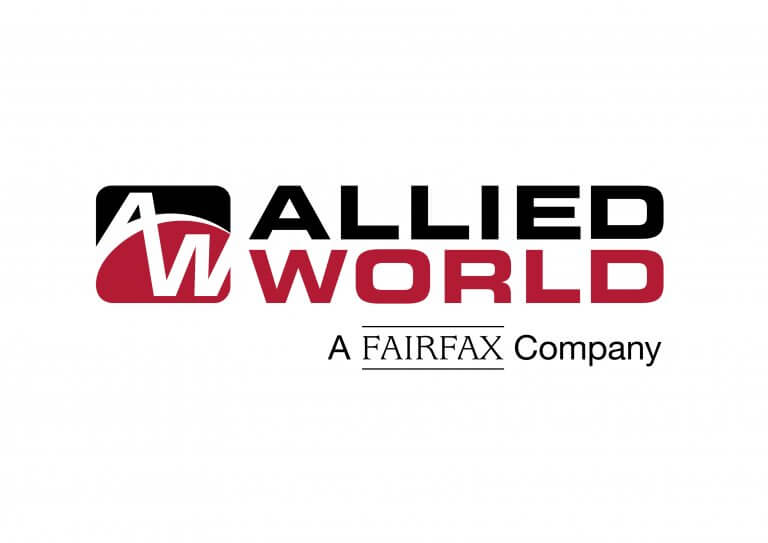Allied World: How logistics risk management can significantly improve a client’s risk profile
February 21 2020
By Paul Houston
Alexander the Great and logistics risk management have more in common than you might think!
“My logisticians are a humorless lot… they know if my campaign fails, they are the first ones I will slay.”
– Alexander the Great
The emperor was obviously talking about the men behind the success or failure of his military crusades, and while his way of dealing with failure was extreme, it nevertheless illustrates the importance of logistics in any successful international operation.
Today, to stay competitive, improve efficiencies and ensure customer satisfaction, companies often have to undertake complex logistical arrangements that would make even the great Alexander’s head spin. The management of the flow of goods between the point of origin and the point of consumption is no longer as simple as from point A to point B. Furthermore, in today’s world, the intricacies ‘behind the scenes’ of shipping and distributing goods is far beyond the complexity of an ancient Greek military operation.
With undesirable disruptions to the flow of goods affecting a business’ supply chain and commercial agreements, risk management is a vital piece of armoury for a 21st century business.
Increasingly Complex Risks Meets Practical and Economical Solutions
The global supply chain relies on many different parties working together – such as logistics operators, truckers, shipping lines, airports, rail and customs – to warehouse and move a customer’s goods globally. With this comes inherent, complex risks.
Thieves, in particular, are becoming increasingly inventive and bold in employing tactics to steal goods worth millions of dollars. Methods such as impersonating traffic police to pull over trucks on highways or turning up in fake police cars to warehouses all seem like situations which could have been scripted by Hollywood producers, but are very real.
Often suppliers and manufacturers are unaware of the pitfalls and difficulties involved across their supply chain. This is where specialist logistics risk managers, like those here at Allied World, can add immense value by helping to identify and recommend solutions that significantly improve a business’ risk profile. In particular, our team has many years’ experience working directly in the logistics industry, enabling us to provide many practical and cost-effective solutions.
Three key areas where we see logistics risk management making a significant impact to a client’s risk profile include:
1. Sub-Contracting Risks
The moment a manufacturer outsources or sub-contracts the distribution of its goods, it loses direct control and that is when risks can start to escalate. We normally advise our clients to never sub-contract down more than one layer. Even more importantly, we advise clients to assess any sub-contractor prior to a business relationship and implement an audit procedure to monitor the situation.
2. Static Risks and Security in Transit
Static risk is associated with any damage to goods caused by human behaviour or natural conditions at a fixed location, such as a warehouse. Often these premises house hundreds of millions of dollars-worth of goods and are prime targets for theft. For these static risks, solutions can include visible deterrents such as strong fencing, employee background checks, links to security companies, locks and burglar alarms.

For transit risks, James Bond-style hijacks continue to occur, as do natural conditions such as temperature change that can cause significant loss to goods. Proactive measures, such as GPS tracking, securing trailers, secure parking, use of moisture reducing desiccants and appropriate ventilation are all cost-effective solutions to mitigate transit risks.
3. Supply Chain Logistics
An incident with a key supplier can interrupt the transportation of goods and cause knock-on disruptions throughout supply chain. Known in the logistics industry as ‘Merge in Transit’, this is where several shipments from suppliers originate at different locations and are consolidated into one final customer delivery.
Proactive and reactive supply chain risk management can make or break a company’s existence, as demonstrated in the case of Ericsson and Nokia – a now infamous case of supply chain disruption. Ericsson and Nokia both had the microchips made at the same plant in New Mexico. When the warehouse burned down, Nokia had arrangements with the same and secondary manufacturers at other plants. Ericsson was left with no other source of supply after relying on a single producer for its microchips, and its share of the European market never fully recovered.
Contingency Planning for any Eventuality is Vital
While companies may not be moving an army through the Hindu Kush like Alexander the Great, they can learn a lot from adopting a serious position on risk management and logistics.
The emperor is still famous for his tactics on the battlefield but his capabilities within military logistics were key to his success. If Alexander the Great was a CEO today, I’m confident that logistics planning would be a fundamental factor in his business success.
 ABOUT THE AUTHOR ABOUT THE AUTHORPaul Houston Head of Risk Management, Global Markets, Allied World, Paul Houston has over 30 years of experience in the Risk Management and Insurance industry, working as an underwriter, captive manager, broker and risk manager. Paul brings an expert understanding of the global supply chain industry, having held global roles with DHL and Excel Logistics. Currently based in Singapore, Paul leads a team of over 10 risk engineers and industry specialists, supporting Allied World’s construction, property, cargo and casualty lines of business. Paul has lived and worked in the UK, Bermuda, Belgium, Thailand and Singapore. He holds a BA in Risk Management from Glasgow Caledonian University and is a Chartered Insurance Risk Manager. |
For more information about Allied World’s insurance and reinsurance solutions, please visit www.alliedworldinsurance.com
This information is provided as a risk management resource and should not be construed as legal, technical or clinical advice. Consult your professional advisors or legal counsel for guidance on issues specific to you. This material may not be reproduced or distributed without the express, written permission of Allied World Assurance Company Holdings, Ltd (“Allied World”), a Fairfax company. Risk management services are provided by or arranged through the Australia, Hong Kong or Singapore branches of Allied World Assurance Company, Ltd, a member company of Allied World incorporated in Bermuda with limited liability. © 2020 Allied World Assurance Company Holdings, Ltd. All rights reserved.
-
Allianz General | Allianz General combines innovative protection solutions while powering social good to lead Malaysian market
The insurer proactively addresses emerging risks and evolving customer protection needs while giving back to the community.
-
Sedgwick | Asia’s Energy Transformation – Balancing Growth, Risk and Renewables
Energy market presents unique risks, especially in a region which includes China and Japan as well as developing nations like Vietnam and the Philippines.
-
Beazley | Turbulent Waters: the maritime energy transition challenge
Businesses are facing a complex transition to non-carbon energy sources amid a push to achieve net-zero emissions for the marine sector by 2050.
-
Aon | Navigating shifts in the global and Asia insurance markets
Neelay Patel, Aon head of growth for Asia, says the market in Asia is at an ‘interesting stage of the cycle’.
